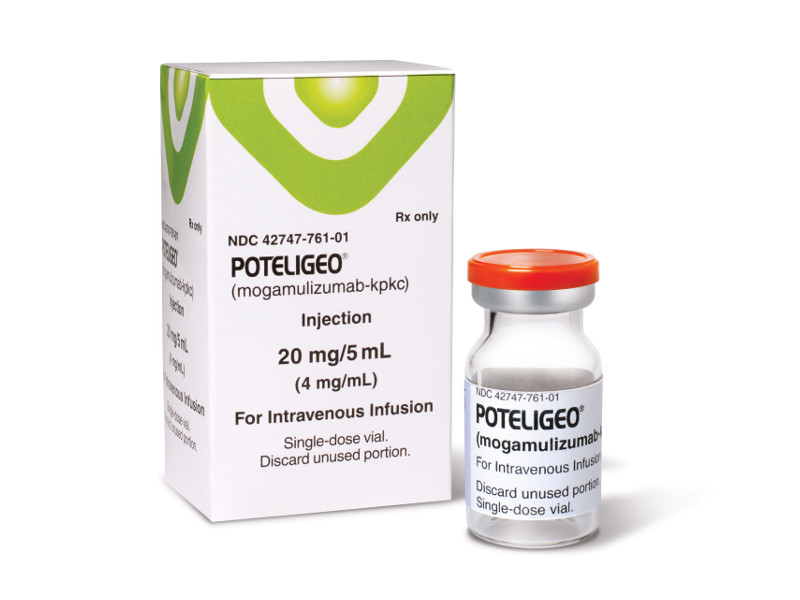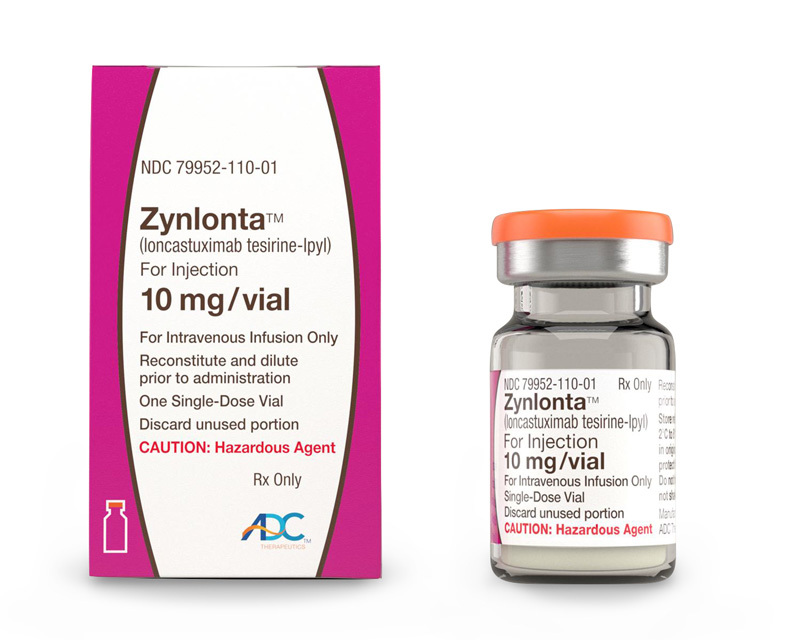Poteligeo (mogamulizumab) vs Zynlonta (loncastuximab tesirine-lpyl)
Poteligeo (mogamulizumab) vs Zynlonta (loncastuximab tesirine-lpyl)
Poteligeo (mogamulizumab) is a monoclonal antibody that targets the C-C chemokine receptor 4 (CCR4) and is approved for the treatment of certain types of cutaneous T-cell lymphoma (CTCL), such as mycosis fungoides and Sézary syndrome, after at least one prior systemic therapy. Zynlonta (loncastuximab tesirine-lpyl) is an antibody-drug conjugate that targets CD19, a protein expressed on the surface of B-cells, and is indicated for the treatment of adult patients with relapsed or refractory large B-cell lymphoma after two or more lines of systemic therapy. The choice between these two medications would depend on the specific type of lymphoma a patient has, as well as their previous treatments and overall health status, and should be made in consultation with an oncologist who can evaluate the individual's unique circumstances.
Difference between Poteligeo and Zynlonta
| Metric | Poteligeo (mogamulizumab) | Zynlonta (loncastuximab tesirine-lpyl) |
|---|---|---|
| Generic name | mogamulizumab-kpkc | loncastuximab tesirine-lpyl |
| Indications | Adult patients with relapsed or refractory mycosis fungoides or Sézary syndrome after at least one prior systemic therapy | Adult patients with relapsed or refractory large B-cell lymphoma after two or more lines of systemic therapy |
| Mechanism of action | CCR4-directed monoclonal antibody | CD19-directed antibody and alkylating agent conjugate |
| Brand names | Poteligeo | Zynlonta |
| Administrative route | IV infusion | IV infusion |
| Side effects | Rash, infusion reactions, fatigue, diarrhea, musculoskeletal pain | Thrombocytopenia, neutropenia, anemia, fatigue, musculoskeletal pain |
| Contraindications | None known | None known |
| Drug class | Monoclonal antibody | Antibody-drug conjugate |
| Manufacturer | Kyowa Kirin Co., Ltd. | ADC Therapeutics SA |
Efficacy
Poteligeo (Mogamulizumab) for Lymphoma
Poteligeo (mogamulizumab) is a monoclonal antibody specifically targeting the CC chemokine receptor 4 (CCR4), which is frequently expressed on the surface of certain lymphoma cells. It has been approved by the U.S. Food and Drug Administration (FDA) for the treatment of adult patients with relapsed or refractory mycosis fungoides (MF) or Sézary syndrome (SS), which are types of cutaneous T-cell lymphoma (CTCL). The efficacy of mogamulizumab was evaluated in a clinical trial known as the MAVORIC study, which demonstrated that mogamulizumab significantly improved progression-free survival compared to vorinostat in patients with MF and SS who had received at least one prior systemic therapy.
Zynlonta (Loncastuximab Tesirine-lpyl) for Lymphoma
Zynlonta (loncastuximab tesirine-lpyl) is an antibody-drug conjugate (ADC) that targets CD19, a protein commonly found on the surface of B-cell lymphomas. The FDA granted accelerated approval for Zynlonta in the treatment of adult patients with relapsed or refractory large B-cell lymphoma after two or more lines of systemic therapy. This approval was based on the results from the LOTIS-2 clinical trial, which showed that loncastuximab tesirine-lpyl achieved a 48.3% overall response rate (ORR) in patients, with a 24.1% complete response rate. The median duration of response was 10.3 months, indicating a substantial proportion of patients experienced a significant period of disease control.
Both Poteligeo and Zynlonta represent advancements in the targeted therapy approach for lymphoma, offering options for patients with specific subtypes of the disease. While Poteligeo is tailored towards T-cell lymphomas with CCR4 expression, Zynlonta is designed for B-cell lymphomas expressing CD19. The efficacy of these drugs is measured in terms of overall response rates, progression-free survival, and duration of response, providing a framework for clinicians to evaluate the potential benefits for their patients with relapsed or refractory disease.
It is important to note that while these therapies have shown efficacy in their respective indications, their performance in clinical trials may not necessarily predict individual patient outcomes. The use of these medications should be guided by a healthcare professional, taking into consideration the specific characteristics of the patient's disease, prior treatments, and overall health status. Ongoing research and post-marketing surveillance continue to provide additional data on the long-term efficacy and safety of these treatments for lymphoma.
Regulatory Agency Approvals
Poteligeo
-
European Medical Agency (EMA), European Union

-
Food and Drug Administration (FDA), USA

-
Therapeutic Goods Administration (TGA), Australia

Zynlonta
-
European Medical Agency (EMA), European Union

-
Food and Drug Administration (FDA), USA

Access Poteligeo or Zynlonta today
If Poteligeo or Zynlonta are not approved or available in your country (e.g. due to supply issues), you can access them via Everyone.org.
How it works

Make an enquiry
Choose the medicine you want to buy, answer a couple of questions, and upload your prescription to speed things up. We’ll get back to you within 24 hours.


Make an enquiry
Choose the medicine you want to buy, answer a couple of questions, and upload your prescription to speed things up. We’ll get back to you within 24 hours.


Breeze through the paperwork
We'll guide you through the required documents for importing unapproved medicine, ensuring you have all the necessary information.


Get a personalized quote
We’ll prepare a quote for you, including medicine costs and any shipping, administrative, or import fees that may apply.


Receive your medicine
Accept the quote and we’ll handle the rest - sourcing and safely delivering your medicine.

Some text on this page has been automatically generated. Speak to your physician before you start a new treatment or medication.
Let's talk
If you have any questions, call us or send us a message through WhatsApp or email:
Contact us




